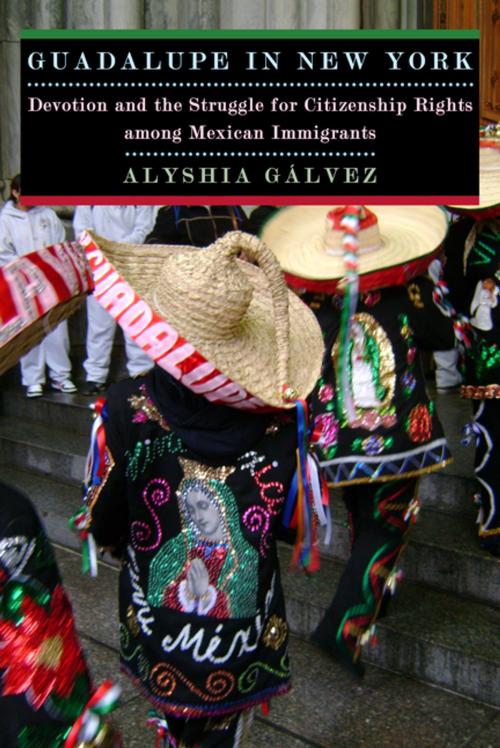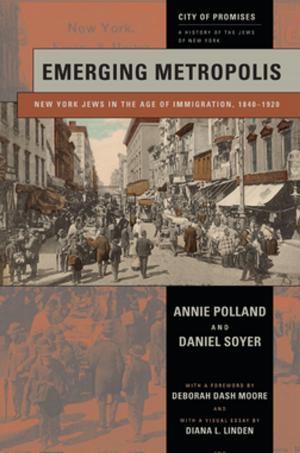Guadalupe in New York
Devotion and the Struggle for Citizenship Rights among Mexican Immigrants
Nonfiction, Social & Cultural Studies, Social Science, Sociology, Marriage & Family, Cultural Studies, Emigration & Immigration| Author: | Alyshia Galvez | ISBN: | 9780814732335 |
| Publisher: | NYU Press | Publication: | December 1, 2009 |
| Imprint: | NYU Press | Language: | English |
| Author: | Alyshia Galvez |
| ISBN: | 9780814732335 |
| Publisher: | NYU Press |
| Publication: | December 1, 2009 |
| Imprint: | NYU Press |
| Language: | English |
Every December 12th, thousands of Mexican immigrants gather for the mass at New York City’s St. Patrick’s Cathedral in honor of Our Lady of Guadalupe’s feast day. They kiss images of the Virgin, wait for a bishop’s blessing—and they also carry signs asking for immigration reform, much like political protestors. It is this juxtaposition of religion and politics that Alyshia Gálvez investigates in Guadalupe in New York.
The Virgin of Guadalupe is a profound symbol for Mexican and Mexican-American Catholics and the patron saint of their country. Her name has been invoked in war and in peace, and her image has been painted on walls, printed on T-shirts, and worshipped at countless shrines. For undocumented Mexicans in New York, Guadalupe continues to be a powerful presence as they struggle to gain citizenship in a new country.
Through rich ethnographic research that illuminates Catholicism as practiced by Mexicans in New York, Gálvez shows that it is through Guadalupan devotion that many undocumented immigrants are finding the will and vocabulary to demand rights, immigration reform, and respect. She also reveals how such devotion supports and emboldens immigrants in their struggle to provide for their families and create their lives in the city with dignity.
Every December 12th, thousands of Mexican immigrants gather for the mass at New York City’s St. Patrick’s Cathedral in honor of Our Lady of Guadalupe’s feast day. They kiss images of the Virgin, wait for a bishop’s blessing—and they also carry signs asking for immigration reform, much like political protestors. It is this juxtaposition of religion and politics that Alyshia Gálvez investigates in Guadalupe in New York.
The Virgin of Guadalupe is a profound symbol for Mexican and Mexican-American Catholics and the patron saint of their country. Her name has been invoked in war and in peace, and her image has been painted on walls, printed on T-shirts, and worshipped at countless shrines. For undocumented Mexicans in New York, Guadalupe continues to be a powerful presence as they struggle to gain citizenship in a new country.
Through rich ethnographic research that illuminates Catholicism as practiced by Mexicans in New York, Gálvez shows that it is through Guadalupan devotion that many undocumented immigrants are finding the will and vocabulary to demand rights, immigration reform, and respect. She also reveals how such devotion supports and emboldens immigrants in their struggle to provide for their families and create their lives in the city with dignity.















